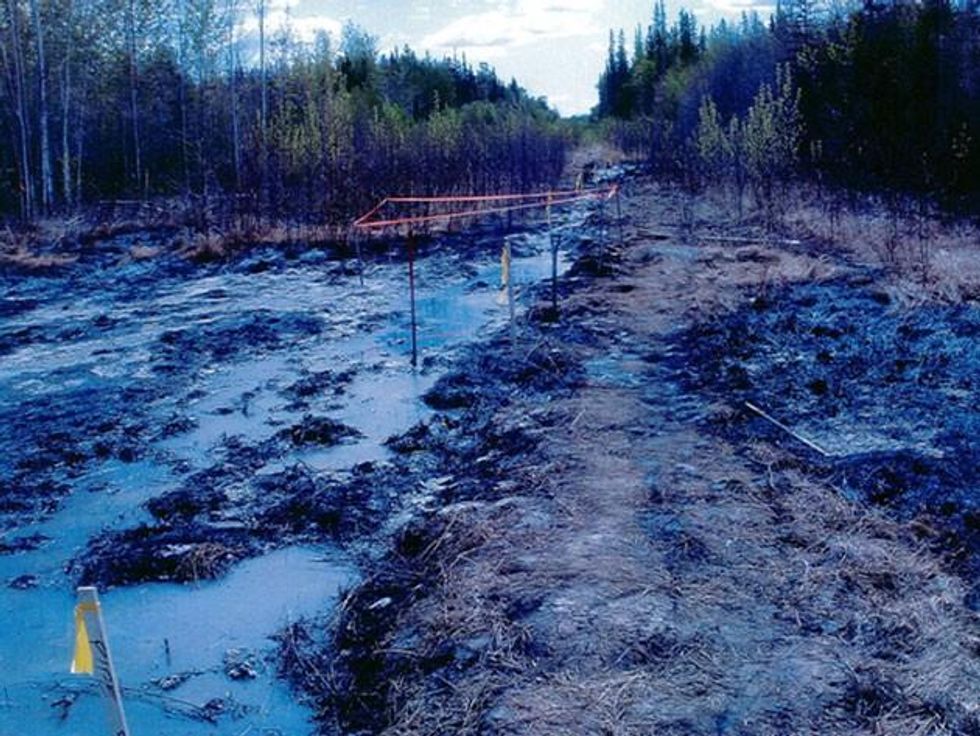When toxic wastewater spills in the woods and no one's there to see it, does it leave a mark?
Or, rather, when the agency responsible for the property fails to report it, can it just go away?
These are the questions raised following reports that Alberta Canada's regulatory agency waited eleven days to disclose that 2.5 million gallons had leaked from a ruptured wastewater pipeline belonging to Apache in the province's Zama City, amounting to "the biggest wastewater spill in North American history."
The spill was reportedly first spotted in the remote region on June 1 by a plane belonging to the Texas-based oil and gas company.
Although Apache notified Alberta's Energy Resources Conservation Board the same day, The Huffington Post reports that the agency waited until June 12 to release a public statement.
"This is a massive spill of toxics into one of the most important wetlands in Canada, if not the world," said Greenpeace spokesman Keith Stewart. "The government shouldn't be trying to hide these kinds of things." He added that the wastewater is "full of toxic compounds."
Local First Nations leaders are pressing the Oil Giant for more information regarding the rupture and subsequent leak.
"There are wildlife impacts and water and land impacts," said Sidney Chambaud, a band councilor with the Dene Tha' tribe, in an interview with The Canadian Press. "Right now within that area the trees, the vegetation and the soil are dead. The water is contaminated."
The Press continues:
Chambaud said the 42-hectare spill is so large it raises questions about how long the pipeline that carries water used in oil and natural gas operations had been leaking.
He said some band members believe the pipeline had been leaking since the winter, but no one noticed it until earlier this month.
"There are indications that the spill occurred earlier, during the winter season, but due to ice and snow it wasn't discovered."
Chambaud said water from the spill has leaked into a stream that runs through a small aboriginal community and onto land used by band members to hunt and trap.
Following news of the spill, Bob Curran, a spokesman for Alberta's ERC Board told the Huffington Post that at first it didn't seem necessary to alert the public of the leak. He added that there are hundreds of spills every year in Alberta and that the agency doesn't alert people "unless there is a public or environmental impact, or an ongoing operational issue."
_____________________



